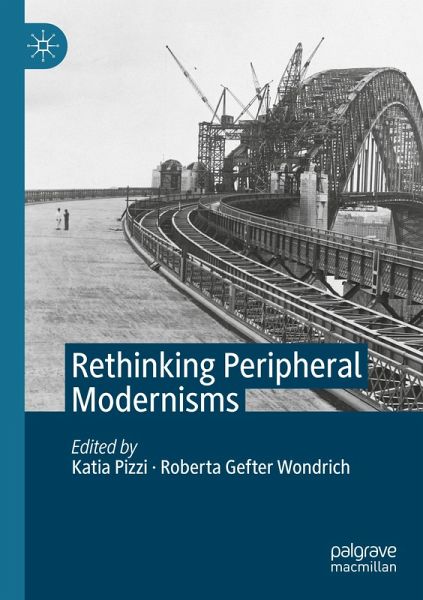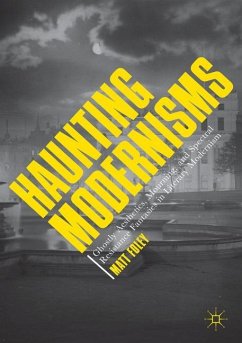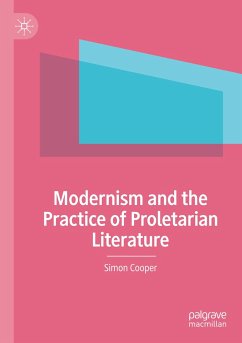
Rethinking Peripheral Modernisms
Versandkostenfrei!
Versandfertig in 6-10 Tagen
98,99 €
inkl. MwSt.

PAYBACK Punkte
49 °P sammeln!
This collection of essays reappraises the contributions made by modernist movements from regions generally regarded as peripheral or semi-peripheral to a global aesthetic of Modernism. It particularly focuses on European semi-peripheries, combining theoretical chapters and individual case studies to examine the cultural and aesthetic complexities of so-called peripheral modernisms. Contributing to research on the 'transnational turn' in New Modernist Studies, the volume takes recent scholarship on postcolonial modernisms one step further by exploring a broader geopolitical expanse than the (fo...
This collection of essays reappraises the contributions made by modernist movements from regions generally regarded as peripheral or semi-peripheral to a global aesthetic of Modernism. It particularly focuses on European semi-peripheries, combining theoretical chapters and individual case studies to examine the cultural and aesthetic complexities of so-called peripheral modernisms. Contributing to research on the 'transnational turn' in New Modernist Studies, the volume takes recent scholarship on postcolonial modernisms one step further by exploring a broader geopolitical expanse than the (formerly) colonised regions under global capitalism. It highlights the local and translocal specificities of modernist movements from regions such as Eastern and Central Europe and the Mediterranean to offer new insights into the concept of global modernism.












